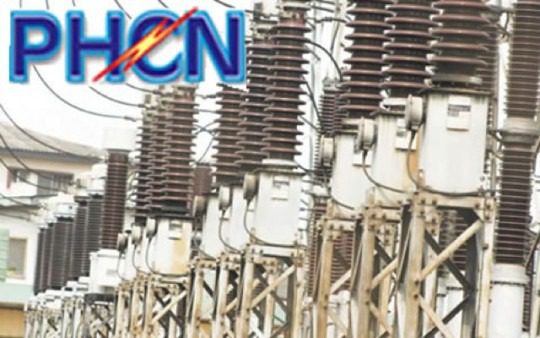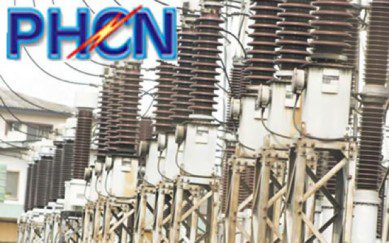National Issues
Electricity tariff and consumers -By Iyke Ozemena


Iyke Ozemena, a Corporate Attorney, based in Enugu examines section 32(f) of Electric Power Sector Reform (EPSR) Act, which encourages consumers who experience 15 days of continuous and cumulative interruption within a calendar month to withhold payment of fixed charge component of their bills.
The quest for electricity is not only for ‘there to be light’ in thebiblical sense.
It is a critical demand, the sort the early 19th century peasants, artisans craftsmen and inventors made and longed forbefore industrial revolution brought automation virtually every where andgave them a new lease of life. What electricity consumers are lookingforward to is regular, sustainable and affordable electricity. The provision of regular, sustainable and affordable electricity that wouldcome with increased sole, small and medium enterprises springing upeverywhere.
The developments have been hitherto stunted because of lack of regular electricity supply leading to high cost of production andservices with generators.
Increased economic and entrepreneurialactivities would have multiplier effect in the various communities,thereby generating second and more layers of employment, especially for youths and school leavers.
One of the indices for measuring the economy is the level ofproductivity. Nigeria’s global competitiveness dropped in 2014,according to a global index, from 120th to 127th in the world, even aspower sector was improving its capacity to deliver energy to boostproductivity. That is just one instance electricity supply hascorrelation with employment and productivity. The Electricity Power Sector Reform Act 2005 (EPSRA) made elaborate provisions for the protection of consumers to enhance productivity in the economy.
Apart from establishing a regulator, Nigerian Electricity Regulation Commission (NERC) by clause 32 part III, it enjoins it to ensure that electricity consumers are not short-changed by Distribution Companies (Discos).
In doing so, NERC should ensure fair and balanced regulation. Consumers and the Discos are jointly required to determine fixed charges.
The tariff shall be fixed, and reviewed in consultation with consumers. NERC also advises government and operators on energy policy formulation. Accordingly, Enugu Electricity Distribution Company (EEDC) held itsfirst town hall meeting and consultations after Transition ElectricityMarket commenced early this year.
The meeting covered the entire area of its jurisdiction. Top on the agenda was presentation of the proposed new tariffs. Apart from being an exercise provided by the law, it could have passed for industrial democracy in action.
However, any objection to the tariffs as presented would have fallen on deaf ears because the consultation with electricity consumers is all they require to comply with the regulations. In my opinion the thorny issue remains the consumers enforcement ofs.32(f) of EPSR Act which urges consumers who experience 15 days ofcontinuous and cumulative interruption/outages within a calendar month to withhold payment of fixed charge component of their bills.
How does and average electricity consumer, especially those users in rural areascalculate this? Even if you calculate in your opinion what constitutes abreach of this section, what evidences does consumer or all in a certaincommunity have to prove the withholding of fixed charge. That provision isunrealistic and illusory.
Perhaps there has not been cases of this nature yet, however it does not mean that they do not exist. But one notices that the intricacies ofproof is latent and may deter consumers from taking them up. However, the Transition Electricity Market has a panel of Arbitrators who may be called upon to determine or interprete the provisions and possible breaches.
Every Disco is mandated to establish a Customer Complaint Unit charged with the responsibility of receiving and resolving complaints, ranging from deficiencies, prices/tariffs to unfair trade practices. Themeeting was an auspicious occasion to demonstrate that provision. Incases of complaints s.3(8) requires complaints to be resolved within 15working days until the case is finally resolved.
A couple of persons said they travelled to Abuja to resolve somecomplaints that must be the seat of the panel. But I wondered how anaverage electricity consumer could shoulder that complexity. However, NERC is obliged under Ss.8 and 9 to provide procedure for resolving the complaints and thereafter constitute a panel for resolving it.
While NERC created Credited Advances Payment for Meter Implementation (CAPMI) to augment the dearth of metering its customers, it is not clear how effective the initiative has been in resolving the disturbing issue of estimate billing.
Earlier in the year NERC had created Nigerian Electricity ConsumerAdvocacy Network(NECAN) which sent positive signals to the communities that its role to ensure good corporate governance, transparency and accountability is for real. As the network becomes more interactive one of the burning issues to be resolved is whether NERC could operate dual regulatory function by seeking an amendment to s.32(f) of EPSR Act to allow its regulation of gas in addition to electricity.
The advantage consumers would argue coming from so doing is to fortify NERC’s ability to protect them. Presently the speed and quantity of gas supply determines the quantum of mega watts of electricity generated. They argue that the regulator would ensure that gas supply is adequate in quantum with necessary speed.
Now that the Nigerian Electricity Management Services Agency bill hasbeen passed and signed into law by former president Goodluck Jonathan, the Advocacy Network should consider whether indeed it is a duplication of the function of NERC as argued by some segment of the public.
Thereafter it could also go ahead to demand policy and legislation tocompel suppliers of technical components and equipments to the Discos to establish manufacturing industries locally or in partnership with local companies as required by ‘local content law’.
Even as Chinese companies are exploring possibly of manufacturing components locally, I gather that past administration proposed bill for local content in power sector got stock at the 7th Assembly.
While the bill is in the works I think that ‘local content’ has become anorm in Nigeria’s corporate and industrial life. Nigerian Oil and GasIndustry Content Development Act 2010 “Nigerian Content Act” was passed to reserve job opportunities for Nigerians in oil and gas sector and other areas where jobs were hitherto done by expatriates.In the Act ‘local content’ was defined as: “the quantum of compositevalue added to or created in Nigeria through utilization of Nigerianresources and services in the petroleum industry resulting in thedevelopment of indigenous capability without compromising quality,health, safety and environmental standards”.
This provision isencompassing and mandatory on all operators to use Nigerian human and material resources.The Nigerian Content Development Monitoring Board (NCDMB) has the responsibility to ensure compliance. Apart from the difficulty inregulating on issues of guidelines similar to NERC’s, definitions andmeasurements of provisions, the case of LADOL v. SAMSUNG has revealed how challenging compliance of ‘local content law’ has been so far.So the tariff is not only going to impact on consumers alone, it isgoing to reflect on the teeming unemployed persons and how ‘local
content law’ should be applied to this advantage. Therefore a properbalance is needed to bring about the desired change.



















